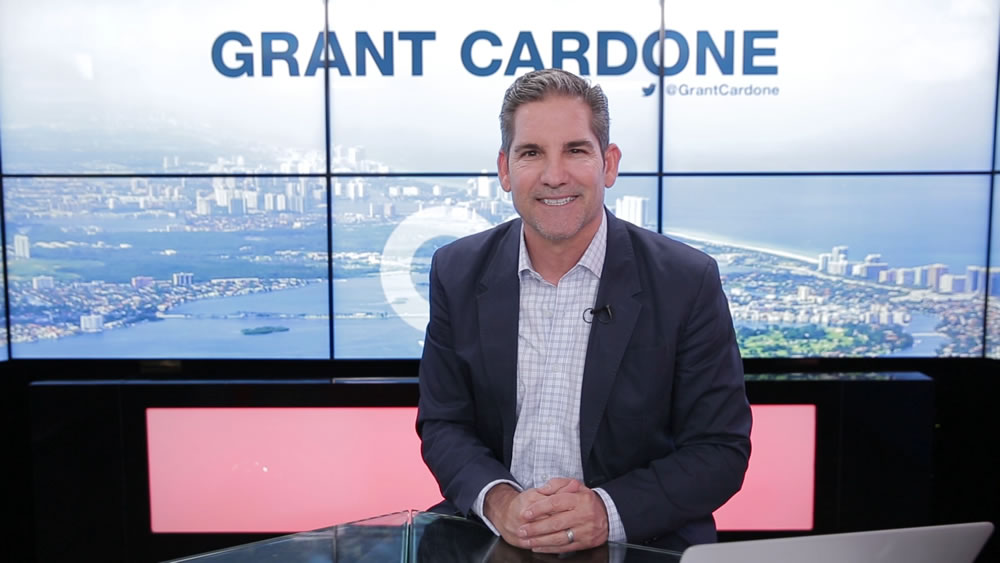124: Real Estate Millions with Grant Cardone!

Podcast: Download
Leverage in the form of bank debt is a double edge sword.
Obviously, consumer debt to buy things like televisions and mall junk can only be negative in the financial sense.
However, using debt to buy cash flowing assets is perhaps the single most powerful weapon we can use to create wealth and the thing that makes real estate the asset of choice for the ultra-wealthy.
The problem is that leverage is a tool that you must learn to use because, after all, a fool with a tool is still a fool.
Leverage must be deployed carefully based on the asset and the market. In 2008, banks and buyers were both over-leveraged and that created a big mess.
For borrowers, it was often the first time that they paid close attention to the fine print on the mortgages which they signed. That fine print often included loan covenants.
A lone covenant is a promise that you make with a bank to lend you money. For example, a bank may say that they will lend you 80% of the value of a property. That means you have to come up with 20 percent. That 80 percent is based on the appraisal value at the time of purchase.
So, what if your property goes down in value just because the markets dipped and the property you bought goes down in value? Well, in that case, you are violating a loan covenant.
If you are violating a loan covenant, does the bank care whether or not you are cash flowing? Not really. If they find out, they are going to ask you to cough up some more money so that you are no longer in violation of those covenants. If you don’t, you could lose the property. Now, for larger assets, periodic appraisals from the bank, maybe every 18 months, are standard. That means you can’t hide from them.
If you think that this is an unlikely scenario, I would suggest you talk to any major real estate investor in 2008. Values plummeted and regardless of cash flow, there were capital calls and people lost properties.
Few serious real estate investors argue that we are not late in the cycle. Does that mean that you should stop investing for fear of covenants? I don’t think so. I just think you have to be smart about it. It’s impossible to time out market cycles perfectly. If you sat out the last five years of investing, you’d feel pretty foolish right now.
Part of being smart later in the cycle like we are now is not to over-leverage. That means two things really. Look at the loan covenants and give yourself some cushion. If the bank is willing to lend you up to 80%, maybe you only take 70%.
The other strategy is to deleverage by creating equity in the property itself. For example, in larger assets the value of a property is determined solely by net operating income.
So, if you increase net operating income by adding value, you are increasing the value of the property. When you increase the value of the property, you are effectively deleveraging.
That is my strategy right now when it comes to acquiring real estate. Use moderate leverage and drive up net operating income. And if you can get a bank to give you favorable covenants, that helps too. But buying a property with no intention of creating additional value in this market is a little bit risky in my view.
That’s my advice for the week when it comes to real estate investing. Now, if you don’t believe me that you can build some serious wealth from leveraging real estate, listen to the guy I interviewed on Wealth Formula Podcast this week: Grant Cardone. He has made a few hundred million doing exactly that. Don’t miss it!
Grant urges his followers and clients to make success their duty, responsibility, obligation, and to rise above outdated, unworkable middle class myths and limitations in order to achieve true freedom for themselves and their families.
His straight-shooting viewpoints on leadership, the economy, small business, retail sales, employment, and headlines have made him a valuable resource for media seeking commentary and insights on real topics that matter.
Shownotes:
[00:07] Introduction
[09:45] Grant Cardone’s story
[17:19] Breaking out of Scarcity Mentality
[20:22] The Wealth Thermostat
[24:41] How much is “enough”?
[29:05] Getting into real estate
[34:01] Grant’s assessment of the current market
[38:30] Learn more about Grant Cardone
- grantcardone.com
[45:13] Outro
- Join our accredited investor club: https://www.wealthformula.com/join-2/invest-with-me/
 Send Buck a voice message!
Send Buck a voice message!




